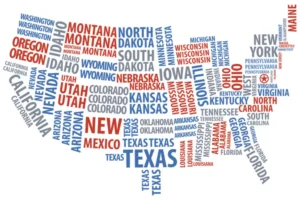She had a sweet little voice — one that could have belonged to a girl much younger. “Do you have some money so I could buy some shoes?” she asked.
I glanced down at her. The dark-haired girl sat on the sidewalk with her back against the stone building. Her bare toes peeked out from beneath her muslin, hippie-style skirt. My friend and I were rushing through the chilly Denver rain after spending some time at our favorite bookstore. The day was colder than it should have been for late March.
I mustered a sympathetic smile. “I’m sorry,” I said. “I don’t have any cash.”
I wondered if the girl’s request was a ploy. What could sound more pitiful than begging for shoes? Even if I did give her cash, would she spend it on shoes? Probably not, I thought.
We hurried on and turned the corner. What I saw caused me to stop in my tracks. Two shoe stores loomed ahead, one on either side of the street.
I turned to my friend. “I’m going to go ask that girl her size and see if she really wants shoes.” The 15-year-old girl, Audrey, told me she wore size 8-1/2. “Thank you SO much!” she said.
Inside the shoe store, I chose a pair of stylish tennis shoes, while my friend purchased a package of socks. When we returned, Audrey gave us each an exuberant hug and immediately pulled on the socks and shoes. “You are the nicest people I’ve met in Denver,” she said.
She explained how she had come on a bus from Salt Lake City the day before. “I didn’t expect it to be this cold,” she said. We learned that she loved to watch plays. I wondered about the girl’s life — who she was and whom she had left behind.
After we chatted for a bit, I asked her if I could pray for her. “Um, sure,” she said. I prayed that she would find friends and a place to stay in Denver.
She hugged us again before we left. I didn’t stop thinking about her all day.
The One Thing
I’m embarrassed to admit that my encounter with Audrey is one of the few times I’ve had a meaningful conversation with a homeless person.
One time my sister and I were being followed by a homeless man downtown. Finally he said, “Excuse me, but where do all the homeless go?” I was so tense that I took it to be a philosophical question, and couldn’t muster a response.
Finally, the man said: “I mean, is there a shelter or somewhere for homeless people to sleep?”
Obviously I feel uncomfortable talking to the homeless — the poor in my community. I’ve heard the arguments: “You’re not really helping them by giving them money.” “They’ll spend it on alcohol.” “Let them go to the places equipped to help them.” These statements ease the guilt I feel for keeping my wallet — and my mouth — closed.
In his book The Justice God is Seeking, worship leader and songwriter David Ruis talks about the “one thing” found in Galatians 2:8-10:
James, Peter and John, those reputed to be pillars, gave me and Barnabas the right hand of fellowship when they recognized the grace given to me. They agreed that we should go to the Gentiles, and they to the Jews. All they asked was that we should continue to remember the poor, the very thing I was eager to do.
Of all the things James, Peter and John could have instructed Paul to do, their first priority was to make sure he cared for the poor. This was something that Paul already recognized as a central focus of his ministry. Ruis writes:
These people who met in Jerusalem knew poor people. They did not remember poverty, they remembered the poor. Could it be that the poor and marginalized might be accepted — without being “fixed” first — and allowed to be the center of community life?
That’s a good question. Clearly, caring for the poor is an essential part of following Christ. After all, preaching the gospel to the poor was one of Jesus’ self-proclaimed purposes:
The Spirit of the Lord is on me, because he has anointed me to preach good news to the poor. He has sent me to proclaim freedom for the prisoners and recovery of sight for the blind, to release the oppressed. (Luke 4:18)
Least of These
Scripture is clear on how the Christ-follower ought to view the poor. Invite them to your meals (Luke 14:13). Treat them as if they were Christ Himself (Matthew 25:40). Do not be prejudiced against them for their lowly material state (James 2:1-4).
Sadly, I don’t view the homeless like that. I tend to focus on their shortcomings, which demonstrates my arrogance: “Why can’t they get a job?” “They could clean up if they really wanted to.” “Any money I give would just support their sinful lifestyle.”
Leaving behind human arguments about how people find themselves on the street, let’s simply consider how God sees the situation. Ruis writes:
Where it really matters, we are all the same. We are all in need of God. We are all in need of mercy. We are all equal at the foot of the cross.
Oftentimes, the only difference between the poor and the rich is that the poor have no resources with which to cover their flaws, sins and addictions.
We are all poor and helpless before a holy God. Money simply allows us to appear less needy. Obviously there are consequences to foolish choices in this life, but spiritual bankruptcy is the larger issue — and the one we ought to be concerned about. Jesus was.
Adopting God’s heart for the poor is a challenge. So many social and political ideas are wrapped up in the execution of justice and charity. How do we do it? Who is responsible? How much should we give? What organizations are trustworthy? Which programs are effective?
But beneath the social conversation, Jesus whispers simply: Remember the poor.
Friend in Need
Remembering the poor goes beyond dropping change in an offering plate or writing a monthly check to a relief organization — although these are virtuous acts of generosity. Jesus calls us to go a step further and become friends with the poor — to develop relationships with them.
And if our care for the poor is to be effective, it must be motivated by love. Giving itself is not the issue. 1 Corinthians 13:3 says: “If I give all I possess to the poor and surrender my body to the flames, but have not love, I gain nothing.”
Ruis writes:
Money and resources definitely have a role in redressing injustice, and at times, justice can be administered through the halls of political power; the Christian community must have a voice there. But money and power can create the temptation to exchange love and justice for charity. In Kingdom currency, that is never a good exchange. Instead of charity, we must seek friendship.
And there’s the rub. Friendship to the poor can be messy (particularly for a single woman). And yet I must try. In my next article, I will explore what it means to love mercy and take practical steps toward remembering the poor in our communities.
Audrey reminded me that reaching out doesn’t have to be complicated. You never know the eternal impact even one conversation may have.
Copyright 2008 Suzanne Gosselin. All rights reserved.










